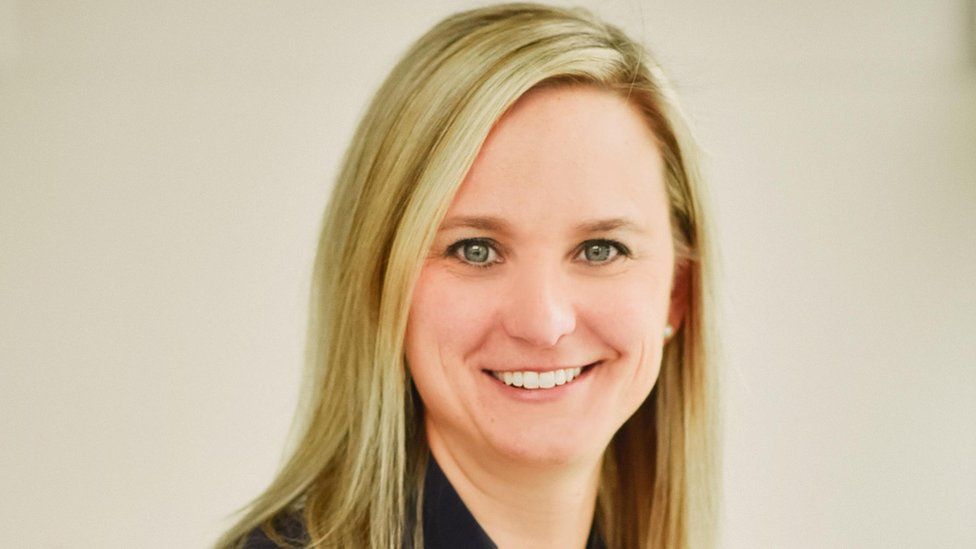'I was often the only woman in the room. That's changed'
- Published

Kelly Becker, who runs engineering firm Schneider Electric's UK and Ireland operations, says twenty years ago she was often the only woman in the room.
"I can still be the only woman in the room, but it's less and less, and that to me is exciting."
Ms Becker's experience reflects a broader shift, with women now making up more than a third of top jobs at the UK's 350's largest firms.
The number of women on boards has risen 50% from 682 to 1,026 in five years.
The figures were released by the government-backed Hampton-Alexander Review, which was launched in 2016 to encourage UK-listed companies to appoint more senior women.
It said they showed "a dramatic shift in representation at the very highest levels of British business".
Ms Becker said there had "been a lot of work done" on getting women into executive positions at firms.
"It takes really careful thinking and planning to drive diversity into organisations, not just gender, but diversity of thought, diversity of experience, diversity of background," she told the BBC's Wake up to Money programme.
"Companies have been very clear that their business will perform better with diversity," she added.
The improvement at the UK's biggest firms was also welcomed by campaigners such as the 30% Club, which champions better boardroom representation of women around the world.
Ann Cairns, global chair of the organisation, said: "The Hampton-Alexander Review has played a significant role in bringing about greater gender diversity to the boardrooms of Britain's biggest companies."
But she said, progress in female representation at the highest levels remained "fragile and slow".
The Hampton-Alexander Review's statement said that FTSE 100, 250 and 350 firms all reached the target of women making up 33% of boards by the end of 2020.
It said that, unlike countries including France which have introduced quotas, the target is voluntary.
'Successful blueprint'
Business Secretary, Kwasi Kwarteng, said: "FTSE companies have made incredible progress in recent years, but we cannot become complacent in building a society where everyone has an opportunity to get on and succeed.
"The UK government's voluntary, business-led approach to increasing women's boardroom representation has been hugely successful and will, I hope, serve as a blueprint for countries across the world looking to make business more reflective of society."
Mary O'Connor, acting senior partner at KPMG UK, said: "It's hard to believe that as recently as 2011, 43% of the FTSE 350 still had all-male boards. Thankfully the representation of women on boards and in leadership positions has significantly improved in recent years, with this review having played a critical role in realising that.
"Our collective efforts to truly eradicate those barriers and create an inclusive leadership culture doesn't stop here, this is where it intensifies."
Related Topics
- Published23 July 2020
- Published27 July 2020
- Published8 February 2020